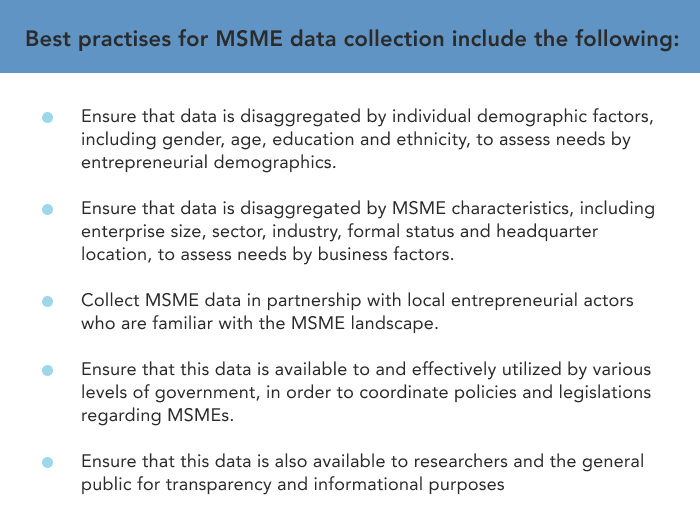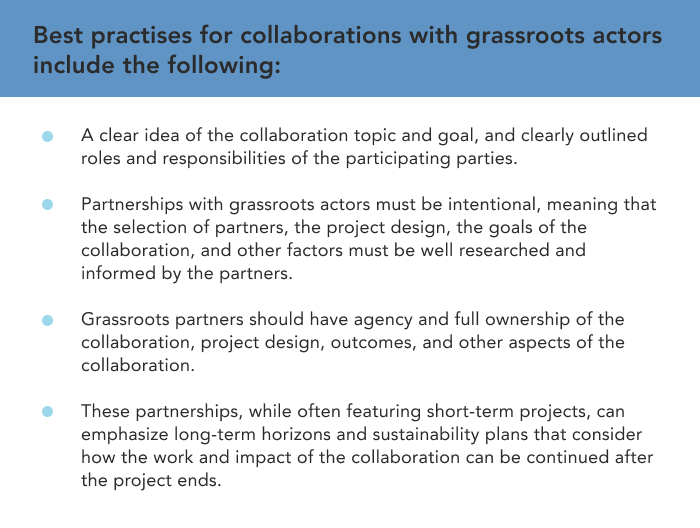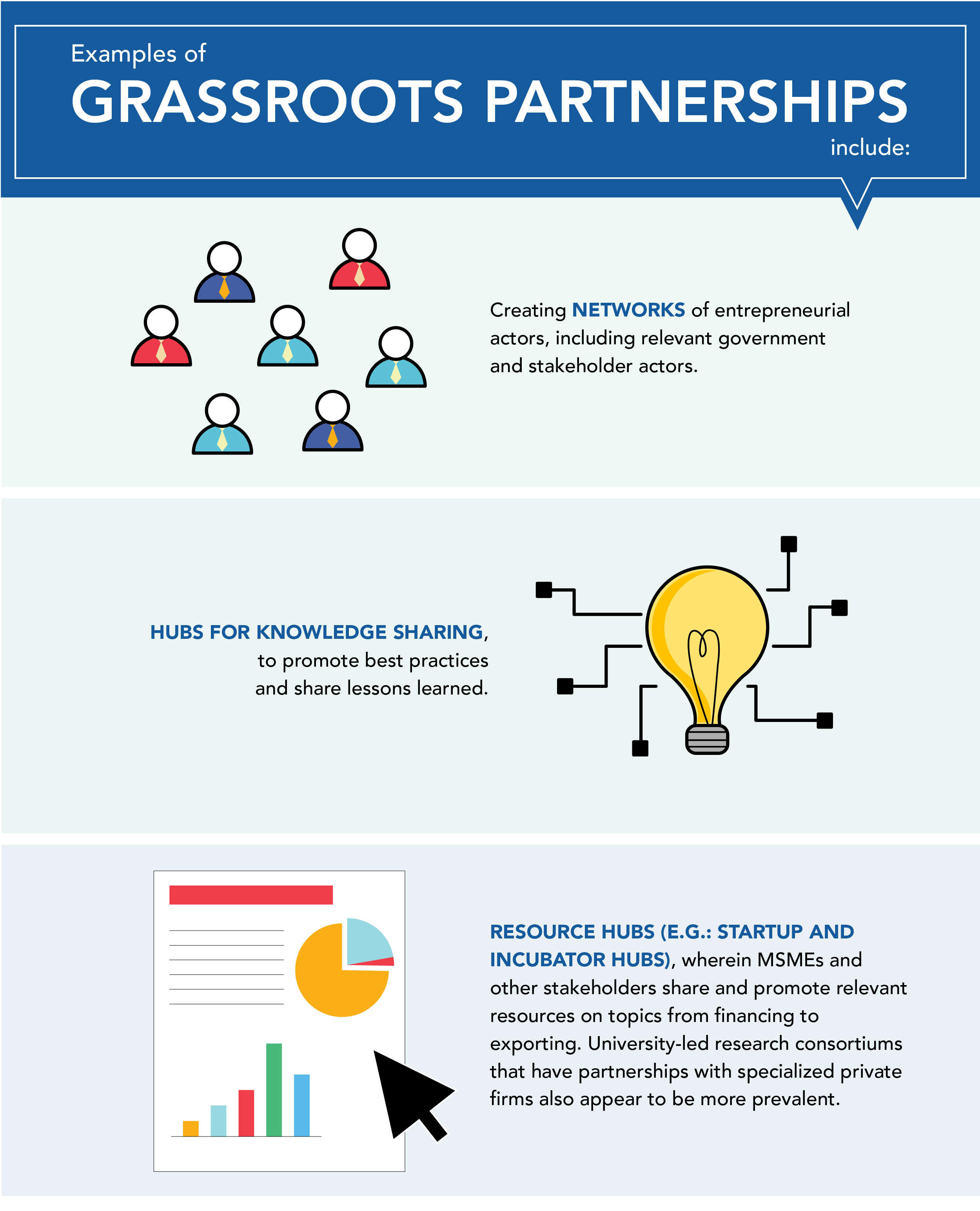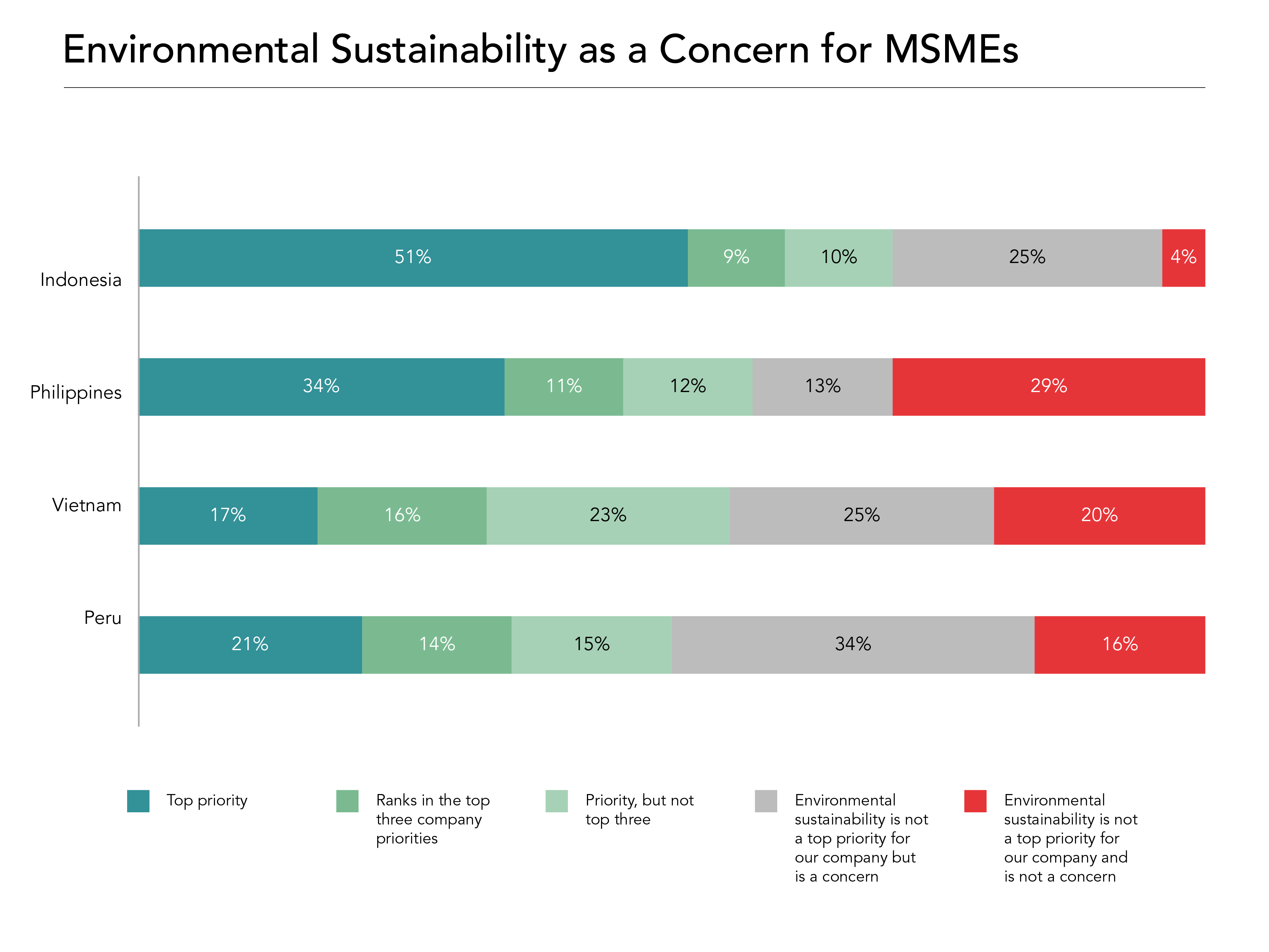Promoting Inclusive Post-Pandemic Growth
The COVID-19 pandemic has shone a spotlight on existing societal inequities around the world. The socioeconomic impact of the pandemic has disproportionately affected women, youth and MSMEs, while also significantly derailing the progress made in advancing equality for these groups. The APEC Secretariat has noted that the promotion of inclusive growth is crucial to ensuring that “the Asia-Pacific region is resilient to [future] shocks, crises, pandemics, and other emergencies.”
Guiding questions:
-
What does inclusive growth after the COVID-19 pandemic look like, for MSMEs, women and youth, among other groups that are socioeconomically vulnerable?
-
What policies and measures best support inclusive economic growth for these groups?
Context
1. Targeted solutions for distinct needs
An important tool to create targeted solutions for MSMEs is the collection of disaggregated information and data that records the specific, distinct needs of different demographic groups, including women, youth, and rural-based enterprises, among other groups.

Our research partner, Kai Analytics, also shares best practices in survey design and data collection through this resource.
2. Building responsive MSME infrastructure and support
Inclusive post-pandemic growth must include equitable access to business infrastructure, including physical and digital infrastructure, given the current push to digitalize. This includes equitable access to internet, devices, innovative technologies and software.
APEC governments must ensure equitable access particularly for rural-based businesses, which typically have reduced access to internet and other infrastructure needs. For example, our on-the-ground research in Peru highlighted the resource difference between urban centres and rural areas, including access to internet infrastructure as well as physical government services and consumer bases.
Survey data has also shown gendered trends in access to MSME infrastructure and support. Findings from the national surveys indicate that women entrepreneurs may have a harder time accessing support services, such as networking and financial services, compared to their male colleagues and counterparts.
It is vital that the existing infrastructure and support services available for MSMEs, such as the Philippines’ Go Negosyo Centers and Peru’s Emprendedor Peruano platform, are responsive to the specific needs of different demographic groups of entrepreneurs, as well as of MSMEs according to their size and other factors.
Data collection will be vital toward tailoring this infrastructure toward the present and emerging needs of different MSMEs. This also adds transparency around diversity and equality in how projects are funded by public programs.
3. Grassroots partnerships for sustainable growth
To encourage long-term sustainable growth for MSMEs in APEC economies, it is vital to foster intentional partnerships and collaborations between government and on-the-ground entrepreneurial actors. These partnerships can help ensure that policies, research, programming and other work with MSMEs is informed by local actors, response to MSMEs’ needs, and is sustainable in the long term.

 In addition, MSME business associations are important channels for promoting networking and knowledge sharing among participating MSMEs, and that act as interlocutors between MSMEs and government on the behalf of entrepreneurs.
In addition, MSME business associations are important channels for promoting networking and knowledge sharing among participating MSMEs, and that act as interlocutors between MSMEs and government on the behalf of entrepreneurs.
For example, these collaborations can emphasize the goal of achieving long-term environmental sustainability among MSMEs. Our national survey research has shown that the majority of respondents in each focus economy do consider environmental sustainability a concern for their business model.

APEC governments can encourage MSMEs to focus on environmental sustainability through mandating sustainable business practices in MSMEs’ business models, and providing MSMEs with the tools and training to achieve sustainable growth, such as funding and grants based on sustainability benchmarks and best practices, sustainability training programs, collaborative ecosystems, and crowd-sourcing of apps and platforms that facilitate sustainable practices.
Policy Recommendations
-
Disaggregated MSME data: Disaggregated data must be maintained and expanded to better understand the nuanced impacts on MSMEs, including the varying impact according to differing industries, enterprise sizes, and formal or informal nature of enterprises. This data must then be included as a metric or criteria for government programming and funding.
-
MSME infrastructure and support: To ensure a level playing field, all MSMEs must have access to physical infrastructures and support services, including those in rural or remote geographical areas, and in informal or unregulated industries.
-
Inclusive and sustainable business models: Create inclusive business models which allow MSMEs to transition to a post-pandemic economy through innovation, adaptation and entrepreneurship. Since MSMEs are one of the main drivers of the APEC region’s growth, MSMEs’ sustainable long-term practices (e.g.: gender- and youth-inclusive strategies) in business strategies are crucial.
-
Recognize and incentivize non-financial Impacts: Recognize the broader impacts of MSMEs in their local communities, such as providing financial literacy, training in best practices in their industry, and investment into local infrastructure and education.
Relevant Policies
2040 Putrajaya Vision: The APEC Secretariat’s guiding vision outlining its priorities for inclusive growth.
2030 Agenda for Sustainable Development: The United Nations’ agenda until 2030 promoting inclusive and sustainable growth.
Sustainable Development Goal #8: “Promote sustained, inclusive and sustainable economic growth, full and productive employment and decent work for all.”
International Labour Organization SME Unit: Promotes the creation of more and better jobs in small and medium enterprises, focusing on five key areas: entrepreneurship and management skills, productivity and working conditions, enterprise formalization, access to markets, and enabling environment reform.